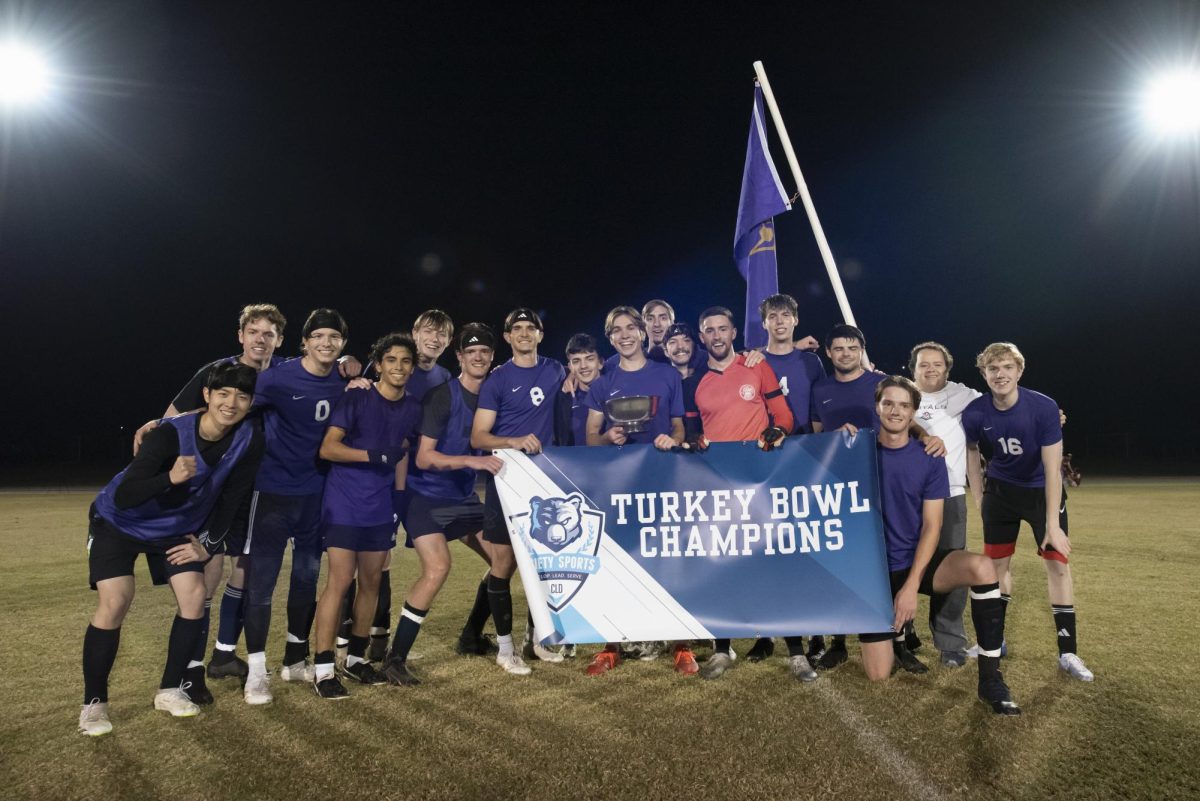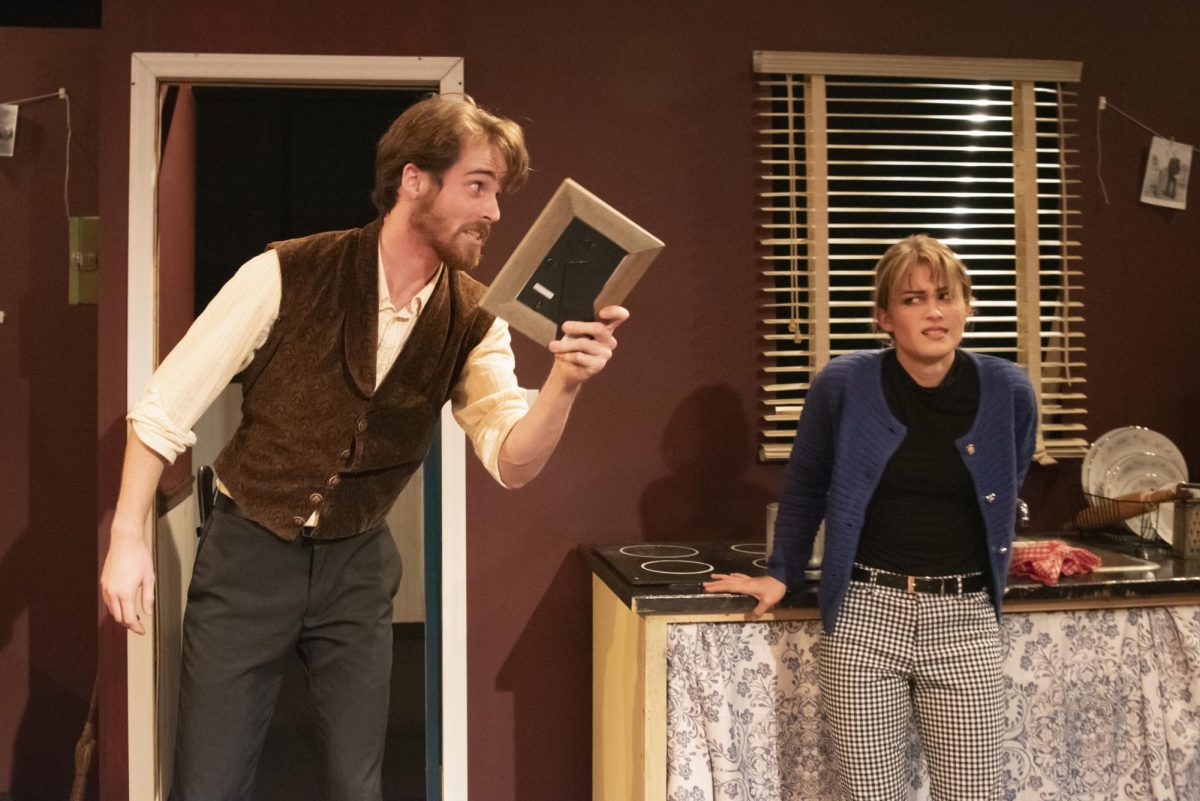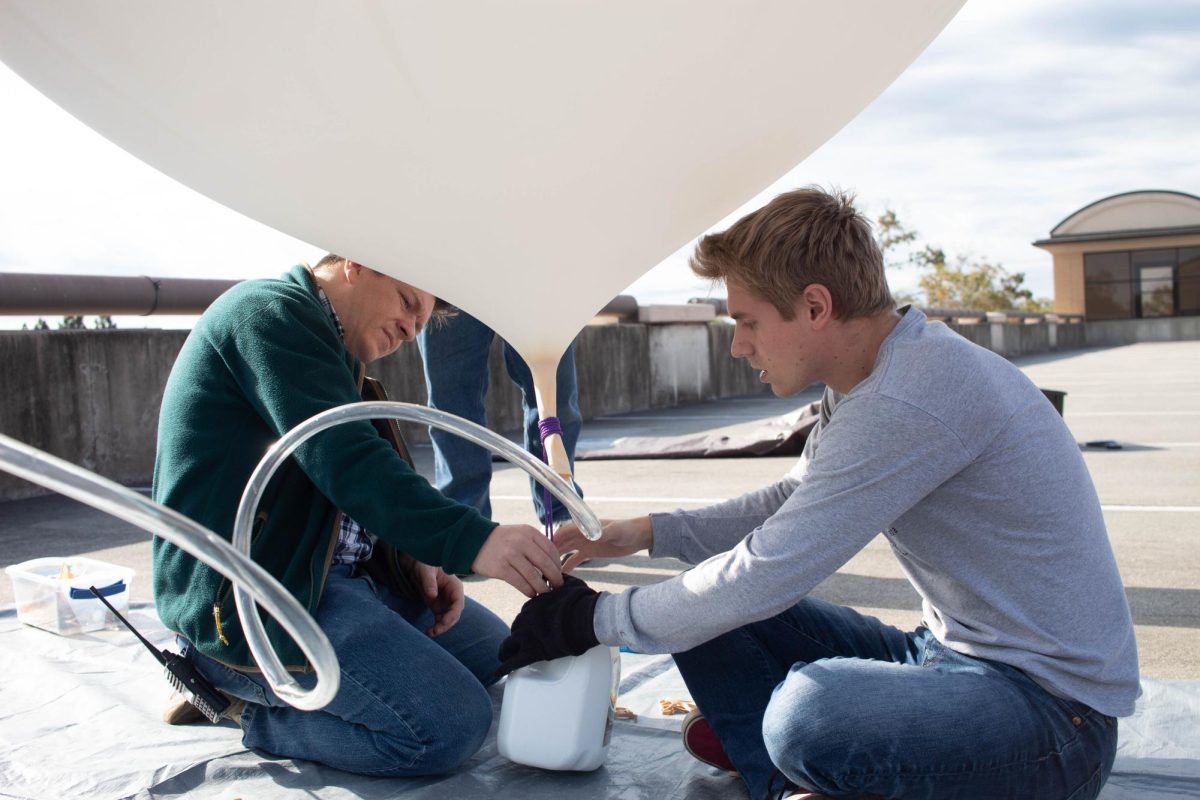These quiet spiders and a sweet German Shepherd, to pick just a couple examples of our non-squirrel friends on campus, enhance the BJU student body’s ability to delve into biology and appreciate the loyalty of service animals.

Dr. David McKinney, a faculty member in the department of biology, maintains the spider lab in the Howell Memorial science building and uses the arachnid collection for outreach and research.
McKinney said, “[The spiders] are a very powerful tool for reaching out to people, especially children.” The University has used the spiders for various events, including displaying them to prospective students and loaning them out to the Collegiate Biology Association. “Children love spiders and bugs, and they are a great story piece,” McKinney said.
However, the spider lab is used for more than outreach. McKinney partners with students for research projects: “I help them understand what is going on with the spider so they have a framework to ask questions and do experiments.” The students study a variety of topics, ranging from a short analysis of the spider’s nervous system to a longer study of a process within the spider’s life cycle.
McKinney said, “We provide students with hands-on experience in a real-world context in a system that is very challenging.” The academic world is lacking in research on arachnids which leaves an open door to lots of things researchers at BJU can do that are signifi cant to science, McKinney said. By studying these arachnids, McKinney and the students are not only contributing knowledge of spiders to the scientifi c community, but they are also furthering studies on health and living processes.
For any interested students, McKinney recommends contacting him or Dr. Chris Carmichael, another faculty member in the biology department. McKinney said, “Dr. Carmichael runs the serpentarium, and there are tours available for interested parties.” McKinney is also willing to work with students if they are interested in touring the spider lab or using the spiders for academic purposes.
 Dr. Jessica Minor, dean of the School of Health Professions, can be seen around campus with her energetic service dog, Jersey is 7-year-old German Shepherd assists Minor by picking up objects or fetching her phone. She is currently learning how to open and hold doors. Minor said, “She was born and trained in Czechoslovakia, so she speaks Czech and I speak Czech for the commands.”
Dr. Jessica Minor, dean of the School of Health Professions, can be seen around campus with her energetic service dog, Jersey is 7-year-old German Shepherd assists Minor by picking up objects or fetching her phone. She is currently learning how to open and hold doors. Minor said, “She was born and trained in Czechoslovakia, so she speaks Czech and I speak Czech for the commands.”
While her interactions with students and faculty are limited, Jersey is friendly to anyone she meets. “If I do have a class, she typically goes in to say hello to some of the students,” Minor said. However, in most settings, Jersey must remain focused on Minor.
“[Jersey] does bring some excitement to the administrative meetings and deans’ meetings,” Minor said. Various times, professors have been startled in meetings by the sudden appearance of Jersey at their feet, licking their toes. When she is not helping Minor, Jersey loves to chase the squirrels and bark up the trees. “[Jersey] does have an interesting personality, and she makes things exciting,” Minor said.


























































